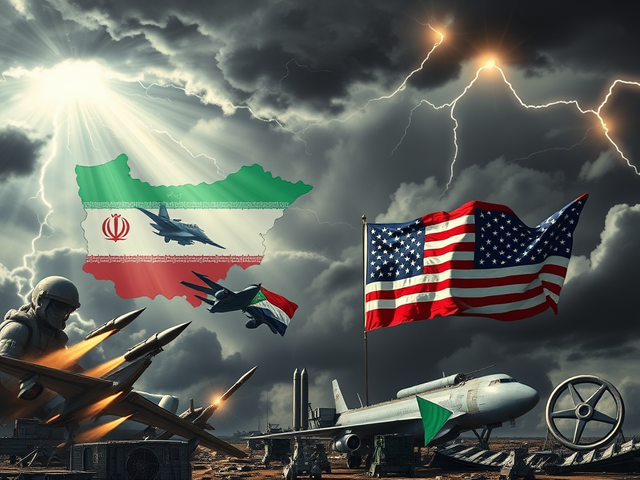Iran and the U.S.: An Impasse Over the Israeli-Palestinian Conflict
Iran and the U.S.: An Impasse Over the Israeli-Palestinian Conflict
The Middle East's geopolitical landscape continues to grow more complex as tensions between Iran and the United States escalate, further exacerbating the ongoing Israeli-Palestinian conflict. The two issues are intertwined, as U.S. support for Israel is often seen as a point of contention with Iran. Recent developments have heightened concerns about regional stability and global security, with multiple stakeholders becoming increasingly entangled in this intricate diplomatic web.
Recent U.S. Military Actions and Their Impact
In a significant escalation of military engagement, the United States recently conducted strikes on Iranian targets. President Donald Trump claimed successful outcomes, stating that the strikes had significantly degraded Iran's military capabilities. However, the specifics of these claims, such as the number of casualties and the extent of damage to military infrastructure, remain unclear. The actual extent of damage inflicted remains a subject of debate among international observers. While Trump asserted that key nuclear facilities were targeted, questions persist about the strategic effectiveness of these operations.
Regarding the Isfahan site, where Iran allegedly stores substantial quantities of highly enriched uranium, Trump admitted that there was no apparent attempt to target the underground tunnel network. This omission raises questions about the operation's ultimate objectives and effectiveness in hindering Iran's nuclear program.
International Reactions and Diplomatic Implications
The ongoing Israeli-Palestinian conflict and Iran's nuclear program have created a complex diplomatic environment, a source of concern for the United States and its allies. The interconnected nature of these issues makes it challenging to address one without impacting the other.
Russia's Strategic Alignment with Iran
Russian President Vladimir Putin's meeting with Iranian Foreign Minister Abbas Araghchi highlighted the growing alliance between Moscow and Tehran. Putin's strong condemnation of U.S. strikes as "unprovoked aggression" signals Russia's clear position in this conflict and potentially complicates future diplomatic efforts.
Regional Security and Economic Implications
The potential for war and air strikes in the region has created significant uncertainty in global markets. The threat of military escalation, particularly given Iran's strategic location near crucial shipping lanes, poses substantial risks to global energy supplies and economic stability.
Impact on Global Security
This situation has broader implications for global security, with the risk of cyberattacks, proxy conflicts, and terrorism remaining a serious concern. Regional tensions, nuclear proliferation concerns, and the ongoing Israeli-Palestinian conflict create a volatile situation requiring careful diplomatic navigation.
Looking Forward
As these events unfold, the international community watches closely for signs of either escalation or de-escalation. Finding a peaceful resolution to the complex interplay between Iran's nuclear ambitions, regional conflicts, and international alliances will require significant diplomatic effort and compromise from all parties involved. The path forward remains uncertain, and the need for a comprehensive and collaborative approach to address these complex challenges is more critical than ever.
